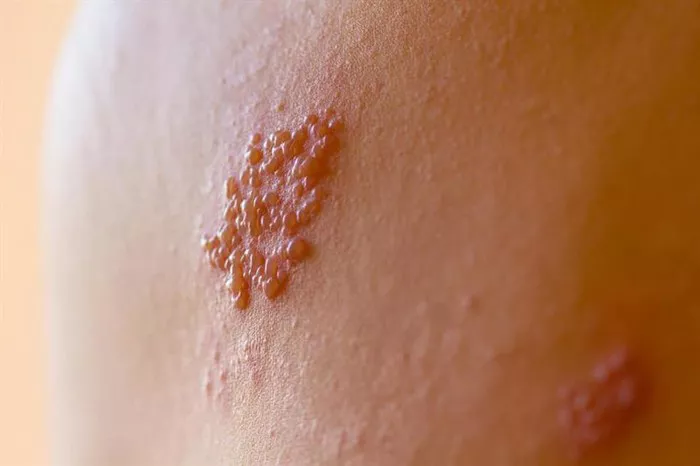Urticaria, commonly known as hives, is a skin condition characterized by red, itchy welts or raised, swollen areas on the skin. These uncomfortable and often unpredictable outbreaks can be triggered by various factors, including allergic reactions, stress, or infections. While identifying and addressing the underlying causes is crucial, finding an effective ointment to alleviate the symptoms and provide relief is equally important. In this comprehensive guide, we will explore the best ointments for urticaria, their ingredients, and how they work to soothe the skin.
Understanding Urticaria
Before delving into the best ointments available, it’s essential to understand urticaria and its manifestations. Hives can appear suddenly and vary in size, shape, and location on the body. They often cause intense itching and discomfort, making it crucial to find suitable remedies to manage these symptoms effectively.
1. Common Triggers
Urticaria can be triggered by a multitude of factors, making it a challenging condition to manage. Common triggers include:
Allergens: Exposure to allergens like certain foods, medications, or insect stings can lead to hives.
Stress: Emotional stress or anxiety can exacerbate urticaria symptoms.
Infections: Viral or bacterial infections can contribute to the development of hives.
Environmental Factors: Changes in temperature, exposure to sunlight, or tight clothing can trigger urticaria.
The Role of Ointments in Urticaria Management
Ointments play a crucial role in managing urticaria symptoms by providing relief from itching, redness, and inflammation. The best ointments for urticaria typically contain a combination of active ingredients that work synergistically to address the underlying causes and soothe the affected skin.
1. Key Ingredients to Look For
Antihistamines: These help counteract the effects of histamine, a chemical released during allergic reactions that contribute to itching and inflammation.
Corticosteroids: These anti-inflammatory agents can effectively reduce redness, swelling, and itching associated with urticaria.
Calamine: Known for its soothing properties, calamine helps alleviate itching and discomfort.
Camphor and Menthol: These cooling agents provide a refreshing sensation, helping to relieve the burning and itching sensations associated with hives.
Top Ointments for Urticaria Relief
Now that we understand the key ingredients, let’s explore some of the best ointments available for relieving urticaria symptoms.
1. Cetirizine Hydrochloride Ointment
Cetirizine hydrochloride is a second-generation antihistamine known for its effectiveness in relieving allergy symptoms, including urticaria. When formulated into an ointment, it provides targeted relief to affected areas, reducing itching and redness. The ointment form ensures easy application and absorption, making it a convenient choice for managing urticaria.
2. Hydrocortisone Cream with Aloe Vera Extract
Hydrocortisone is a mild corticosteroid widely used to alleviate inflammation and itching associated with various skin conditions, including urticaria. When combined with aloe vera extract, known for its moisturizing and soothing properties, it creates a powerful ointment for calming irritated skin. This combination not only reduces inflammation but also promotes skin hydration, preventing further dryness.
3. Calamine Lotion with Pramoxine
Calamine lotion has long been a go-to remedy for skin irritations, and when paired with pramoxine, a local anesthetic, it becomes an effective ointment for urticaria relief. Calamine soothes the skin, while pramoxine provides numbing relief to minimize itching. This dual-action approach makes it an excellent choice for those seeking quick and comprehensive relief from urticaria symptoms.
4. Diphenhydramine Gel with Chamomile Extract
Diphenhydramine, a first-generation antihistamine, is renowned for its ability to relieve itching and discomfort caused by allergic reactions. Formulated into a gel with chamomile extract, known for its anti-inflammatory and calming properties, it becomes a potent ointment for urticaria management. The gel consistency ensures easy application and quick absorption, making it a practical solution for on-the-go relief.
5. Menthol and Camphor Ointment
For those who prefer a cooling sensation to alleviate urticaria symptoms, ointments containing menthol and camphor are an excellent choice. These ingredients work synergistically to provide a refreshing and soothing effect, effectively reducing itching and discomfort. The ointment’s cooling properties make it particularly beneficial for calming the skin during acute urticaria outbreaks.
Choosing the Right Ointment for You
Selecting the best ointment for urticaria depends on various factors, including the severity of symptoms, personal preferences, and any existing medical conditions. It’s essential to consult with a healthcare professional before trying a new ointment, especially if you have allergies, sensitivities, or other underlying health concerns.
1. Considerations When Choosing an Ointment:
Active Ingredients: Look for ointments with antihistamines, corticosteroids, or soothing agents based on your specific symptoms.
Formulation: Consider your preference for creams, gels, or lotions, as well as any additional moisturizing or cooling ingredients.
Consultation with a Healthcare Professional: Seek guidance from your healthcare provider to ensure the chosen ointment is suitable for your individual needs and health status.
Tips for Managing Urticaria Holistically
While ointments provide targeted relief for urticaria symptoms, adopting a holistic approach can enhance overall management of the condition. Here are some additional tips for managing urticaria:
Identify Triggers: Work with a healthcare professional to identify and avoid triggers that may be contributing to your urticaria outbreaks.
Maintain Good Skin Hygiene: Keep your skin clean and moisturized to reduce the risk of irritation and dryness.
Stay Hydrated: Proper hydration supports overall skin health and can contribute to symptom relief.
Manage Stress: Practice stress-reducing techniques such as meditation, yoga, or deep breathing exercises to minimize emotional triggers.
Follow a Healthy Diet: Adopting a balanced and nutritious diet can positively impact overall health, potentially reducing the frequency and severity of urticaria outbreaks.
Conclusion
Living with urticaria can be challenging, but with the right ointment and a holistic approach to management, relief is attainable. The best ointment for urticaria will depend on individual preferences and the specific symptoms experienced. By understanding the key ingredients and considering personal needs, individuals can make informed choices to effectively alleviate the discomfort associated with this skin condition. Always consult with a healthcare professional for personalized advice and guidance on managing urticaria for long-term well-being.


























